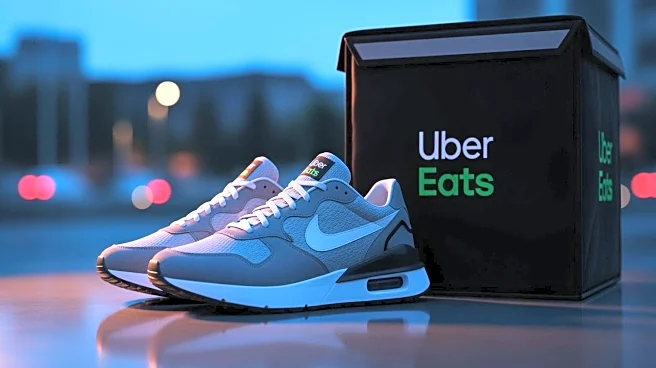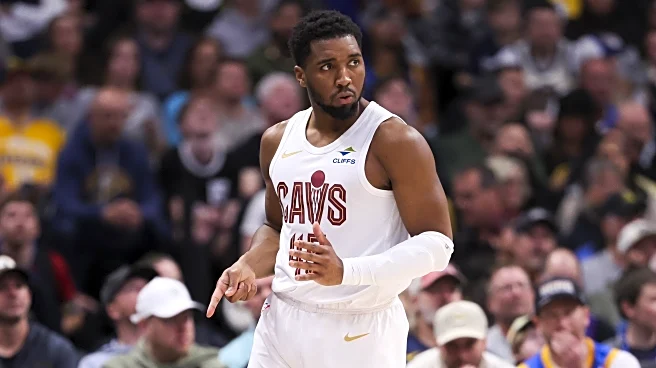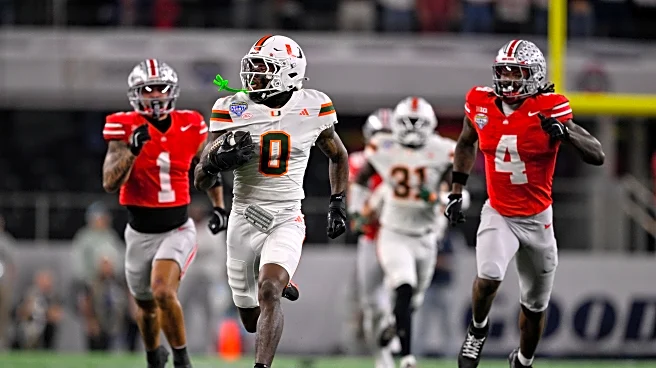What's Happening?
Hibbett, a retailer specializing in sneakers and athletic fashion, has partnered with Uber Eats to offer on-demand delivery services from nearly 900 of its over 1,000 stores. This collaboration allows
U.S. consumers to receive deliveries of sports-related fashion items, including popular sneaker brands like Nike and Jordan, directly to their doorsteps. The partnership with Uber Eats follows similar moves by other non-food retailers, such as Best Buy and Dollar General, to leverage the platform for expanding their delivery capabilities.
Why It's Important?
The partnership between Hibbett and Uber Eats highlights a growing trend among retailers to enhance customer convenience through on-demand delivery services. By integrating with Uber Eats, Hibbett can offer faster and more flexible shopping experiences, catering to consumer preferences for immediate access to products. This move could strengthen Hibbett's competitive position in the athletic fashion market, particularly against rivals like Dick's Sporting Goods, which has also partnered with Uber Eats. The collaboration may also drive increased sales and customer engagement, benefiting both Hibbett and Uber Eats.
What's Next?
As Hibbett rolls out its delivery service with Uber Eats, the company may explore further opportunities to expand its product offerings and reach new customer segments. The success of this partnership could encourage other retailers to consider similar collaborations, potentially reshaping the retail landscape by prioritizing convenience and speed. Additionally, Hibbett may need to address logistical challenges associated with scaling delivery operations across its store network.
Beyond the Headlines
The integration of on-demand delivery services into retail operations raises questions about the future of brick-and-mortar stores and the role of technology in retail. As consumers increasingly opt for online and delivery options, retailers must adapt to changing shopping behaviors and invest in digital infrastructure to remain competitive. This shift may also impact employment in traditional retail roles, prompting discussions on workforce evolution and training.










